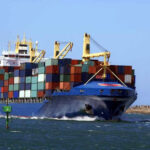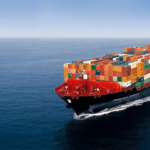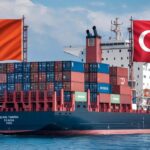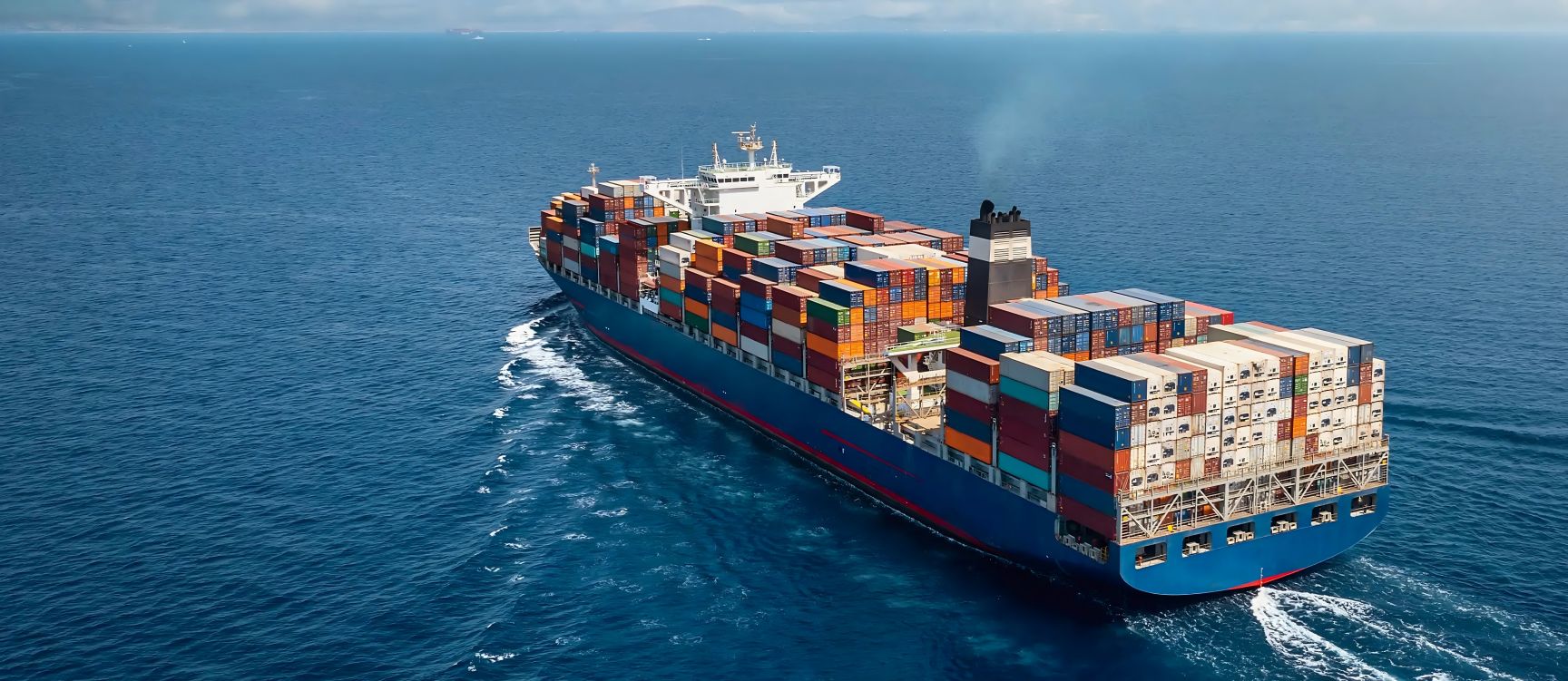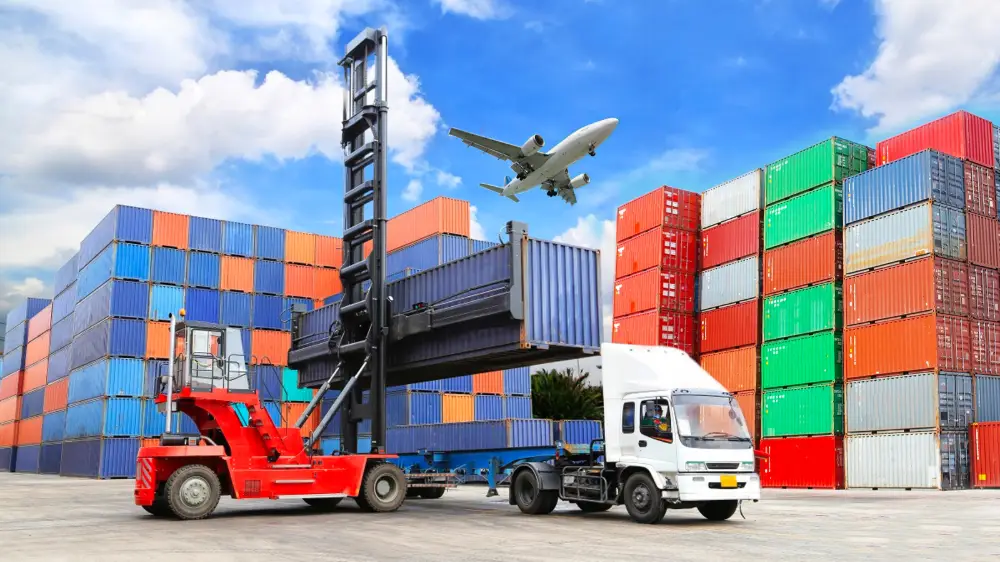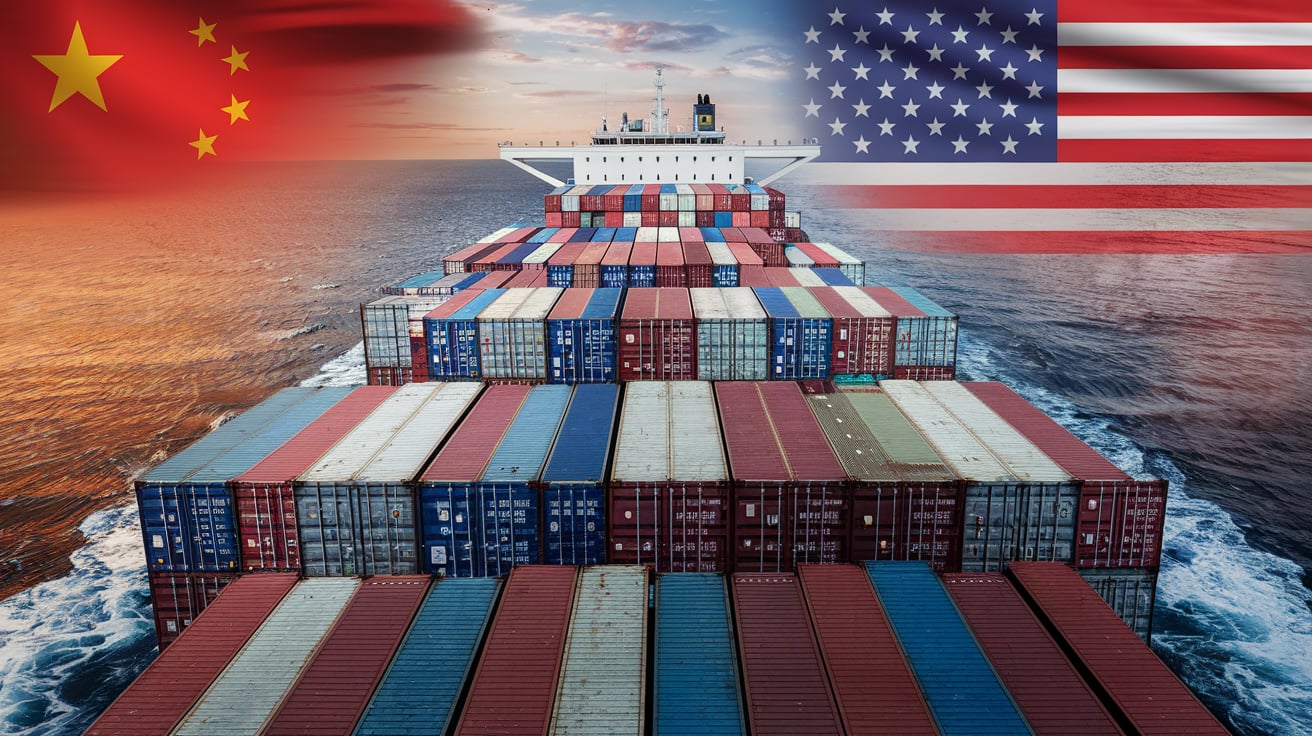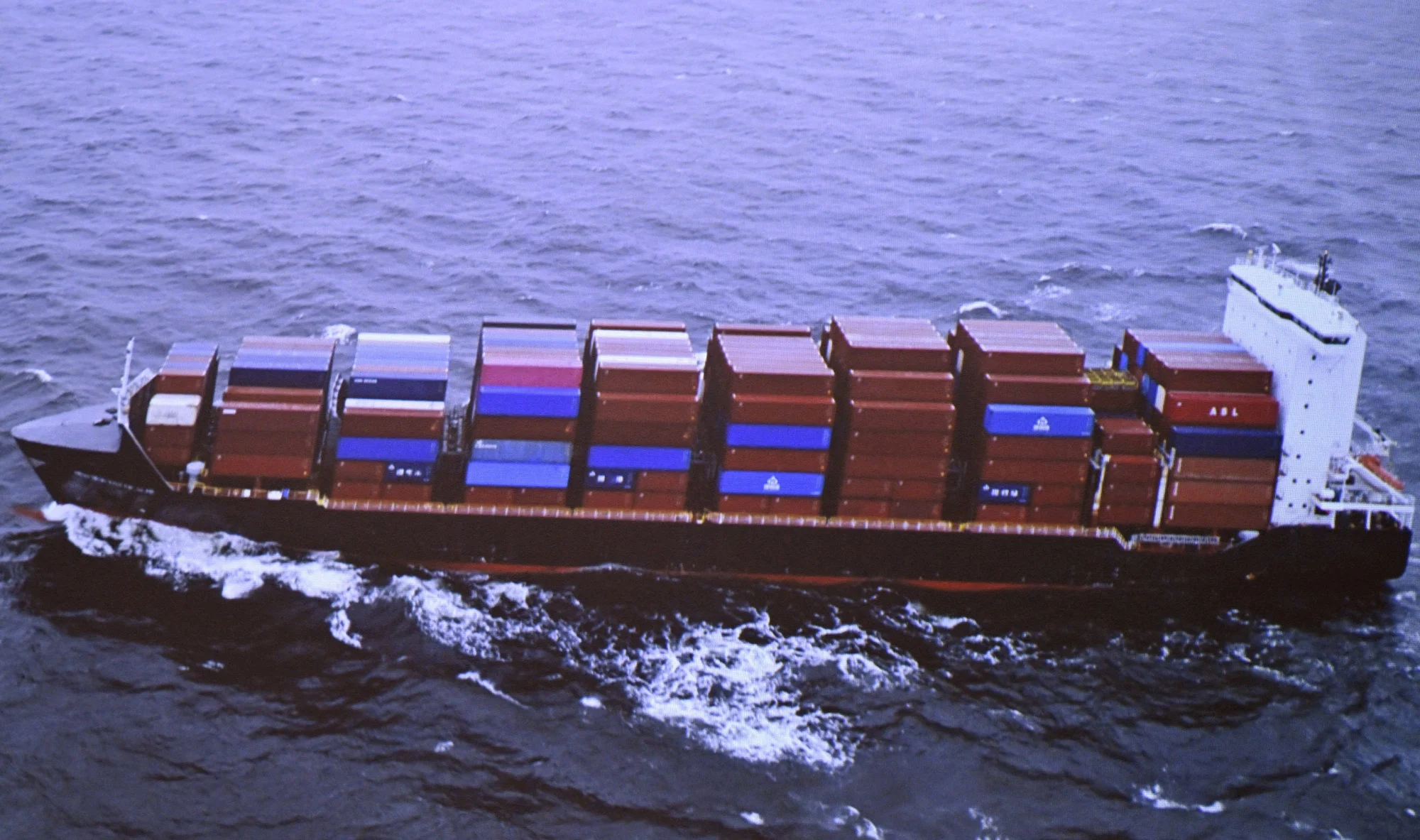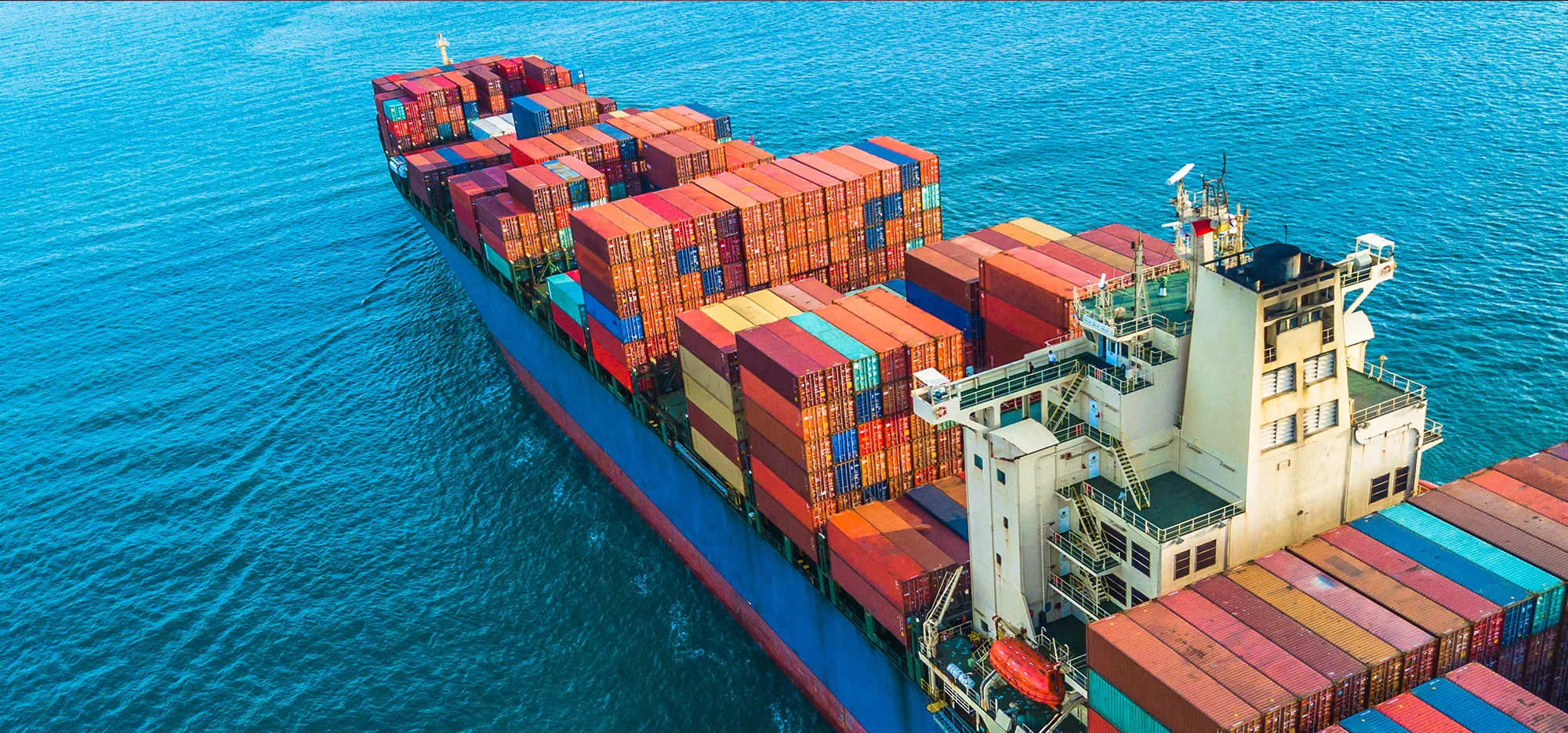Shipping goods from China to Algeria involves navigating a complex landscape of logistical challenges. Among the various options available, sea freight stands out as an increasingly popular choice for importers due to its cost-effectiveness, ability to accommodate large shipments, and versatile container options. The benefits of sea freight extend beyond mere savings, encompassing reliable transit times, reduced environmental impact, and a lower risk of damage to goods. This article delves into the advantages of sea freight, the different service types available, and the key factors influencing costs and delivery times. Whether you’re a seasoned importer or entering the international trade arena for the first time, understanding these aspects will empower you to make informed shipping decisions that align with your business objectives.
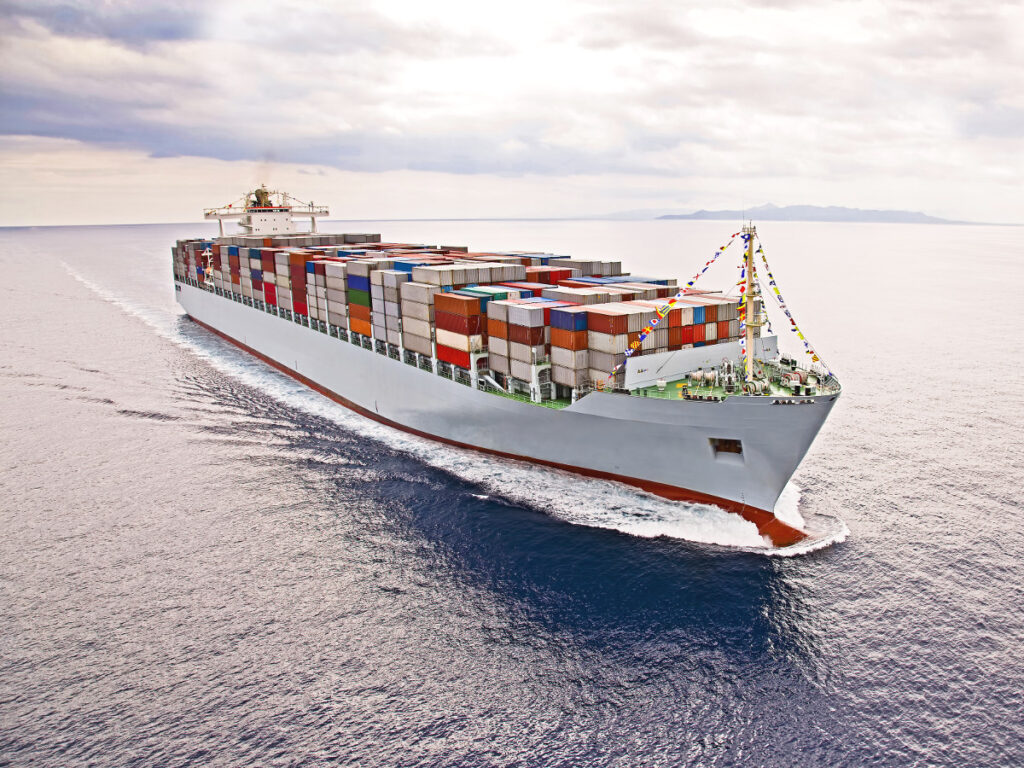
Why Choose Sea Freight for Shipping from China to Algeria?
Shipping goods from China to Algeria involves numerous logistical considerations, and choosing sea freight emerges as a preferred option for many importers. Below are the key reasons why sea freight stands out:
Cost-Effective
One of the most important factors influencing the decision to use sea freight is its cost-effectiveness. Compared to other shipping methods such as air freight, which significantly increases in price with weight and volume, sea freight offers substantial savings over long distances. The cost per cubic meter is lower, making it ideal for businesses looking to maximize their profit margins. According to recent data, the average cost for shipping a TEU (Twenty-foot Equivalent Unit) container from China to Algeria is 20-40% less than air freight options, making it a financially savvy choice for many traders.
Accommodates Large Shipments
Sea freight is particularly advantageous for businesses dealing with large-scale shipments. Containers can accommodate a considerable amount of goods, up to 30 tons or more, depending on the dimensions. This scalability is vital for manufacturers and wholesalers looking to import bulk products or raw materials from China. By utilizing the large capacity of ocean vessels, companies can optimize their inventory management and reduce the frequency of shipments, ultimately lowering costs.
Versatile Container Options
The versatility of container types available for sea freight allows importers to select the option that best suits their shipment needs. Options include:
- Standard dry containers for general cargo
- Refrigerated containers for temperature-sensitive products
- Open-top containers for oversized cargo
This flexibility enables businesses to ship a diverse range of products efficiently and in compliance with specific requirements.
Reliable Transit Times
While sea freight is often slower than air freight, its transit times can still be reliable and predictable. Regularly scheduled services between ports mean that businesses can plan their operations with confidence. Transit times from China to Algeria typically range from 25 to 40 days, depending on the specific port of departure and destination. This predictability allows for better inventory management and operational planning.
Environmentally Friendly
As global emphasis on sustainability grows, sea freight is recognized for its lower carbon footprint compared to other transport methods. Shipping goods via ocean vessels produces fewer emissions per ton-kilometer than both air and truck transport. Importers prioritizing eco-friendly practices can align their logistics strategies with their corporate social responsibility goals by choosing sea freight.
Reduced Risk of Damage
The structured environment of shipping containers minimizes the risk of damage to goods. When properly packed and loaded, containers offer a protective barrier against external elements during transit. Additionally, sea freight services often include cargo insurance options, further ensuring the safety of valuable shipments. Importers can mitigate losses due to unforeseen circumstances by investing in these protective measures.
Read More:
- Shipping From China to the United States
- Shipping From China TO CANADA
- Shipping From China To Netherlands
- Shipping From China To UNITED KINGDOM
- Shipping From China To ALGERIA
- Shipping from China to UAE
- Shipping from China to Saudi Arabia
Types of Sea Freight Services
When considering sea freight, importers have several service options that cater to different shipment sizes and needs. Understanding these options helps businesses make informed decisions that align with their operational requirements.
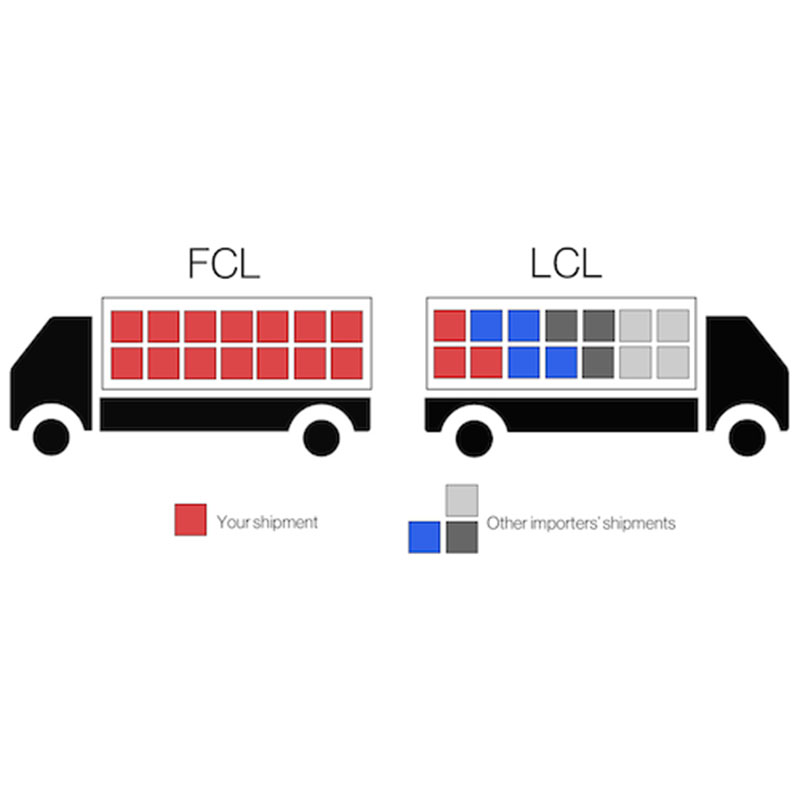
Less Than Container Load (LCL)
Less Than Container Load (LCL) is an excellent option for smaller shipments. Importers who do not have enough cargo to fill an entire container can share container space with other consignments, which significantly reduces costs. This service is particularly beneficial for small businesses or individuals needing to import goods infrequently. LCL shipments are consolidated at the port of departure and then deconsolidated at the destination, allowing for flexibility in logistics management.
Full Container Load (FCL)
For larger shipments, Full Container Load (FCL) is the preferred option. This service allows businesses to use an entire container solely for their cargo, offering safety and simplicity. Not only does this reduce the risk of damage associated with shared containers, but it also can expedite the clearing process at ports. FCL shipments generally enjoy quicker turnaround times, as they require less handling during transit.
| Service Type | Description | Ideal For | Approx. Cost Savings |
|---|---|---|---|
| LCL | Sharing container space with other consignments | Smaller shipments | 10-30% compared to FCL |
| FCL | Exclusive use of a container | Larger shipments | Economies of scale |
By understanding the different types of sea freight services available, importers can better align their shipping strategies with their business needs. For those looking for comprehensive services, Dantful International Logistics offers a highly professional, cost-effective, and high-quality one-stop international logistics service provider. From customs clearance to warehouse services, Dantful is dedicated to ensuring a seamless shipping experience from China to Algeria and beyond. Explore our services and take the next step in optimizing your logistics today.
Factors Affecting Sea Freight Costs and Delivery Times
Several critical factors influence the costs and delivery times associated with sea freight from China to Algeria. Understanding these elements can help businesses make informed decisions and effectively manage their logistics.
Shipping Ports
The choice of shipping ports plays a significant role in determining transit times and shipping costs. Major ports in China, such as Shanghai, Shenzhen, and Ningbo, have established connections with key Algerian ports, notably Algiers and Oran. The distance and efficiency of operations at these ports directly impact the shipping experience. Below is a comparison table highlighting key ports, their characteristics, and expected transit times.
| Port | Country | Port Type | Transit Time to Algeria (days) | Notes |
|---|---|---|---|---|
| Shanghai | China | Major Container Port | 30-40 | Largest port in the world |
| Shenzhen | China | Major Container Port | 28-38 | Known for high cargo volume |
| Ningbo | China | Major Container Port | 32-42 | Key port for bulk shipments |
| Algiers | Algeria | Major Container Port | N/A | Main entry point for international cargo |
| Oran | Algeria | Major Container Port | N/A | Ideal for Western Algeria |
Shipment Size and Weight
The size and weight of shipments significantly affect both costs and delivery times. Generally, larger and heavier shipments incur higher transportation costs due to their impact on vessel space and fuel consumption. Various shipping methods, including Less Than Container Load (LCL) and Full Container Load (FCL), offer businesses flexibility based on their specific shipment requirements. Keeping shipments within optimal weight limits can also minimize additional fees related to overloading or special handling.
Commodity Type
The type of commodity being shipped can influence costs and delivery times due to specific restrictions and special requirements. Certain goods, such as hazardous materials or perishable items, may require additional handling procedures, special containers, or temperature-controlled environments. Understanding these requirements is crucial to ensuring compliance and maintaining the integrity of the cargo during transit.
- Hazardous Materials: These items must comply with strict regulations, including specialized packaging and labeling, which can lead to higher shipping costs and longer transit times for the necessary safety checks.
- Perishable Items: Goods needing refrigeration must be shipped in temperature-controlled containers, which not only have higher base costs but also require careful planning to ensure timely delivery.
Sea Freight Costs from China to Algeria
Pricing in sea freight is influenced by many variables, including shipment size, routing, and other ancillary fees. An understanding of the cost structure can help businesses budget effectively and avoid unexpected expenses.
Cost per Container
The rates for shipping containers, particularly the standard 20ft and 40ft containers, vary based on the origin and destination ports. Below is a comparative table of estimated costs associated with common shipping routes from China to Algeria.
| Container Size | Cost (USD) | Port Pairs | Delivery Time (Days) |
|---|---|---|---|
| 20ft | $1,500 – $2,000 | Shanghai to Algiers | 30-35 |
| 40ft | $2,800 – $3,500 | Shenzhen to Oran | 28-33 |
| 20ft | $1,700 – $2,200 | Ningbo to Algiers | 32-38 |
| 40ft | $3,000 – $4,000 | Shanghai to Oran | 35-40 |
Additional Fees and Charges
Beyond the basic container costs, understanding additional fees and charges is essential for accurate budgeting. Common fees include:
- Customs Duties and Taxes: Importers must be aware of the duties applicable to their specific goods upon entering Algeria.
- Documentation Fees: Charges associated with preparing necessary shipping documents, including bills of lading and customs declarations.
- Handling and Storage Costs: Fees incurred for loading, unloading, and handling cargo at ports, as well as any warehousing costs for delayed shipments.
| Fee Type | Description | Estimated Cost (USD) |
|---|---|---|
| Customs Duties | Varies by product category | 5% – 30% of product value |
| Documentation Fees | Charges for shipping paperwork | $100 – $300 |
| Handling and Storage | Costs related to port operations | $50 – $200 per day |
By carefully considering these factors, importers can optimize their shipping strategies and ensure a smooth logistics process. For a streamlined experience in shipping from China to Algeria, consider partnering with Dantful International Logistics. Our professional, cost-effective, and high-quality services will assist in managing every aspect of your international shipping needs, from customs clearance to warehouse services. Explore how we can help your business thrive in the global marketplace today.
READ MORE:
- Shipping From China To Algeria
- Shipping From China To Angola
- Shipping From China To Morocco
- Shipping From China To Nigeria
- Shipping From China To Kenya
- Shipping From China To Tanzania
- Shipping From China To South Africa
Sea Freight Transit Times from China to Algeria
Understanding the expected transit times for shipping goods is crucial for businesses engaged in international trade. Sea freight from China to Algeria can vary significantly based on the chosen service, route, and operational efficiencies.
Port-to-Port Delivery
Port-to-port delivery refers to the transportation of goods from one port in China to another port in Algeria. The typical transit times for major port pairs are as follows:
| Port Pair | Typical Transit Time (days) |
|---|---|
| Shanghai to Algiers | 30-40 |
| Shenzhen to Oran | 28-38 |
| Ningbo to Algiers | 32-42 |
| Hong Kong to Oran | 25-35 |
| Tianjin to Algiers | 35-45 |
Several factors influence these transit times:
-
Vessel Schedule: Regularity and reliability of vessel schedules can impact delivery times. Delays in port arrivals, especially during peak seasons, may lead to longer transit times.
-
Weather Conditions: Adverse weather conditions can affect shipping schedules, causing delays in both departure and arrival times.
-
Port Efficiency: The operational efficiency at both the departure and destination ports can greatly influence the speed of cargo handling, customs clearance, and overall transit time.
-
Routing and Transshipment: If a shipment requires transshipment (transfer from one vessel to another), additional time may be incurred depending on the waiting period at transshipment ports.
Door-to-Door Delivery
Door-to-door delivery encompasses not just the shipping part but also the logistics involved in getting goods from the seller’s location in China directly to the buyer’s location in Algeria. This service is particularly valuable for importers, as it simplifies the logistics process.
-
Importance of Efficient Customs Clearance: Effective customs clearance processes are critical to minimizing delays at ports. When goods arrive in Algeria, they must undergo customs inspection and clearance before being released for delivery. A knowledgeable freight forwarder, such as Dantful International Logistics, can facilitate this process by ensuring all documentation is accurate and complete, thus reducing the risk of delays.
-
Impact of Last-Mile Delivery: After customs clearance, last-mile delivery is the final stage of transporting goods to the recipient’s specified location. Timely last-mile delivery is essential, as it can significantly affect customer satisfaction. Efficient coordination with local delivery services and effective route planning can mitigate delays during this phase.
Choosing a Reliable Freight Forwarder
Selecting the right freight forwarder is a vital decision for businesses looking to import goods from China to Algeria. The right partner can streamline the logistics process and ensure a smooth shipping experience. Here are key factors to consider when choosing a freight forwarder:
Experience in China-Algeria Trade
A freight forwarder with specific experience in the China-Algeria trade will understand the unique challenges and opportunities associated with this route. They will be familiar with the regulations, customs procedures, and regional practices that can impact the shipping timeline and costs. This expertise allows them to provide valuable insights and recommendations tailored to your shipping needs.
Service Quality and Customer Support
Assessing the service quality of potential freight forwarders is essential. Consider their ability to communicate effectively, their responsiveness to inquiries, and the overall quality of their customer support. A reliable freight forwarder should provide real-time tracking of shipments, regular updates, and a dedicated team to address any issues that arise during transit. Positive customer testimonials and reviews can also serve as indicators of service quality.
Customs Clearance Expertise
Customs clearance can be a complex process, especially for international shipments. A freight forwarder with customs clearance expertise will ensure that all necessary documentation is prepared and submitted correctly, minimizing delays at the border. They should be knowledgeable about current customs regulations, tariffs, and duties applicable to your goods, which can help avoid unexpected costs and legal complications.
By considering these factors, businesses can make informed decisions when selecting a freight forwarder, ensuring a seamless shipping experience that fulfills their operational requirements. For a professional, cost-effective, and high-quality logistics partner, Dantful International Logistics offers comprehensive solutions tailored to meet the needs of global traders. Explore our services to enhance your logistics strategy and optimize your shipping operations today.
Dantful International Logistics Services:
- Dantful Ocean Freight Services
- Air Freight From China
- Amazon FBA Freight Forwarding
- WAREHOUSE Services
- One-Stop Customs Clearance Solution
- Cargo Insurance Services in China
- DDP Shipping Services By Dantful Logistics
- Out of Gauge Cargo Transportation Shipping Services
FAQs
-
Why should I choose sea freight for shipping from China to Algeria?
Sea freight is cost-effective, accommodating large shipments, and offers versatile container options. It also provides reliable transit times, is environmentally friendly, and reduces the risk of damage to goods during transport. -
What are the different types of sea freight services available?
The main types are Less Than Container Load (LCL), which is suitable for smaller shipments sharing container space, and Full Container Load (FCL), ideal for larger shipments using an entire container. -
What factors affect sea freight costs and delivery times?
Key factors include the choice of shipping ports, shipment size and weight, and the type of commodity being shipped. Additional fees such as customs duties and handling costs also play a crucial role in determining overall expenses. -
What are the expected transit times for sea freight from China to Algeria?
Typical transit times range from 25 to 45 days, depending on the port of departure in China and the destination port in Algeria. Regular vessel schedules and the efficiency of port operations can influence these times. -
What are the estimated costs for shipping containers from China to Algeria?
The cost for a 20ft container generally ranges from $1,500 to $2,200, while a 40ft container can range from $2,800 to $4,000, depending on factors such as the port pairs and specific requirements. -
What should I look for in a freight forwarder?
When choosing a freight forwarder, consider their experience in China-Algeria trade, service quality, customer support, and expertise in customs clearance to ensure a smooth shipping process. -
How can Dantful International Logistics help with my shipping needs?
Dantful International Logistics offers comprehensive, professional, and cost-effective logistics services, including customs clearance, warehouse services, and tailored solutions for a seamless shipping experience from China to Algeria.

Young Chiu is a seasoned logistics expert with over 15 years of experience in international freight forwarding and supply chain management. As CEO of Dantful International Logistics, Young is dedicated to providing valuable insights and practical advice to businesses navigating the complexities of global shipping.
The other language versions of this article
- الدليل الشامل للشحن البحري من الصين إلى الجزائر
- De ultieme gids voor zeevracht van China naar Algerije
- Le guide ultime du fret maritime de la Chine vers l’Algérie
- Der ultimative Leitfaden für Seefracht von China nach Algerien
- La guida definitiva al trasporto marittimo dalla Cina all’Algeria
- La guía definitiva para el transporte marítimo de China a Argelia
- O guia definitivo para frete marítimo da China para a Argélia
- Полное руководство по морским грузоперевозкам из Китая в Алжир
- Çin’den Cezayir’e Deniz Taşımacılığı İçin Kapsamlı Rehber



